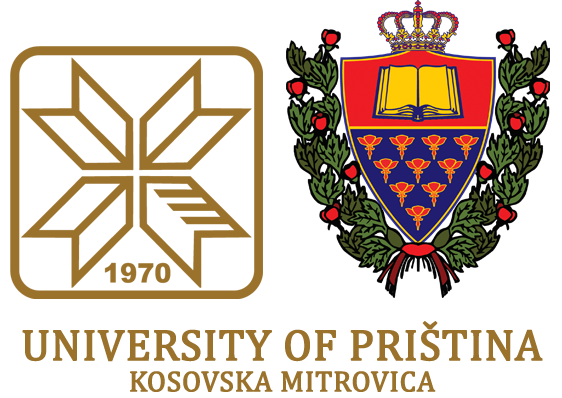Apart from the attendance of regular courses and academic chores, campus life usually includes many other activities at the University. We recognise that it is very important to meet students’ needs and concerns in all aspects of life, ranging from cultural activities and arts to sports activities. Thus, at our University, students not only have a voice in academic and campus affairs, but they also have the opportunity to engage themselves creatively, artistically, spiritually, intellectually and athletically in their spare time. On the University campus, students have their choice of several students’ centres: the Cultural Centre, Centre of Informatics, Sports Centre and several libraries. The Student Cultural Centre offers students various cultural programmes: literary evenings, concerts, theatrical performances, movie projections and similar.
| Study term | Start month | End month | *Examination period |
| Winter semester | October | January | January – February |
| Spring semester | February | May | June and September |
*Additional exam periods: October, April
Student Accommodation Centre provides accommodation and food, at a modest price. To accommodate 1.700 students of the University of Pristina the Center offers ten separate student dormitories that allow students a choice between single and multi-bed rooms.
The organizational structure of the Student Centre Priština today consists of the following facilities: Halls of residence I, II, III, IV, V and VI in Kosovska Mitrovica, two halls in Leposavić along with the halls in Zvečan, Zubin Potok, and Blace.
An average of more than 65,000 meals per month is being prepared in modern Student restaurants. All the meals are of high quality and they are prepared according to the established norms which meet HACCP standards.
Halls of residence are equipped with reading rooms, TV halls, library, the contemporary Student Club, Student Internet Centre, gyms and with the Student Polyclinic.
Special attention is given to the culture, sport and recreation of students. Hundreds of cultural and artistic, sport, tourist and educational programme contents are organized per year. Guests of these programmes are usually the most eminent people in the area of culture who come from Serbia and beyond.
Incoming students are able to stay in the dormitories and eat in the students’ restaurants. Apart from providing accommodations in student dormitories, the Student Centre also offers accommodation to professors, assistants, and researchers employed at the University. The fact that students and professors often reside side by side, promotes closer student-professor relationships and a more collegial atmosphere.
CONTACT
Director: Dragana Antonijević
Džona Kenedija 6, Kosovska Mitrovica
tel: +381 28 425-508
mail: scentarkm@gmail.com
web: www.scp.org.rs
The Student Health Office – Student Polyclinic provides health care to university students (in the age group 19-26) of the University of Pristina during their studies.
The polyclinic was founded in 2005 as the health unit of the Faculty of Medicine. The majority of physicians working in the Polyclinic are lecturers and teaching assistants of the Faculty of Medicine. The Polyclinic is located within the student campus in Kosovska Mitrovica, easily accessible to the vast majority of university students.
The primary goal is preservation and care for students’ health as well as promotion of a healthy lifestyle among the university students.
CONTACT
Dr. Nebojša R. Mitić, Manager
Student campus
Džona Kenedija 6
38220 Kosovska Mitrovica
Tel. +381(0)66-802-05-26
The polyclinic organises its activities in accordance with the needs of the student population and the most common pathologies among them, i.e. diseases and disorders to which this age group is exposed.
Within the Polyclinic there are:
• outpatient service for general medicine;
• outpatient clinics for specialist-consultative services for internal
medicine, gynaecology, dermatovenereology, and ophthalmology;
• dental clinic;
• ultrasound diagnostics station;
• service for monitoring and improving the students’ health (regular systematic examinations of the 1st and 3rd year students, health check-ups prior to enrolment at the faculty and admission to student accommodation);
• haematological and biochemical diagnostics laboratory;
The Service for Monitoring and Improving Student Health also organises: mental health counselling, addiction prevention, counselling against and prevention of sexually transmitted diseases, diabetes and endocrine diseases counselling, and nutrition counselling services. The confidential, free counselling and testing for AIDS is done in a form of a campaign several times a year. Education of students in epidemiological emergencies is also organised.
The Student Polyclinic has good cooperation with the Clinical Hospital Center in Kosovska Mitrovica, the Clinical Hospital Centre Priština in Gračanica, as well as the dental department of the Medical Faculty of Priština in Kosovska Mitrovica. This cooperation permits higher levels (secondary and tertiary) of health care for students and patients.
The ultimate goal of preventive medicine is to protect, promote, and maintain health and well-being and to prevent disease and disability. The Student Polyclinic is in a position to deal with this in the most successful way.
Preventive examinations of students (during their 1st and 3rd year of study) comprise monitoring of more than 30 medical parameters which provide profound insight into the health condition of each student during their studies.
Accordingly, this methodology facilitates timely detection and prevention of serious health disorders.
Citizens of many countries, including most of the European countries, can come to Kosovska Mitrovica without visas for up to 90 days. However, students/staff must check if they should get a visa prior to their arrival.
All foreign citizens have to contact the Office for Foreigners of the Ministry of Interior (Police Department) within 24 hours upon arrival and register their place of residence.
For further information, contact the International Relation Office at the Rectorate building (Filipa Visnjica Street, tel: +381 28 422 340).
Health Insurance
Health care and insurance are important segments. It is crucial that you know the difference between the medical care system in your own country and the medical care system of your host country. Arranging and paying for medical care is your responsibility. The best way to meet this responsibility is to obtain comprehensive health insurance coverage to avoid excessive costs.

